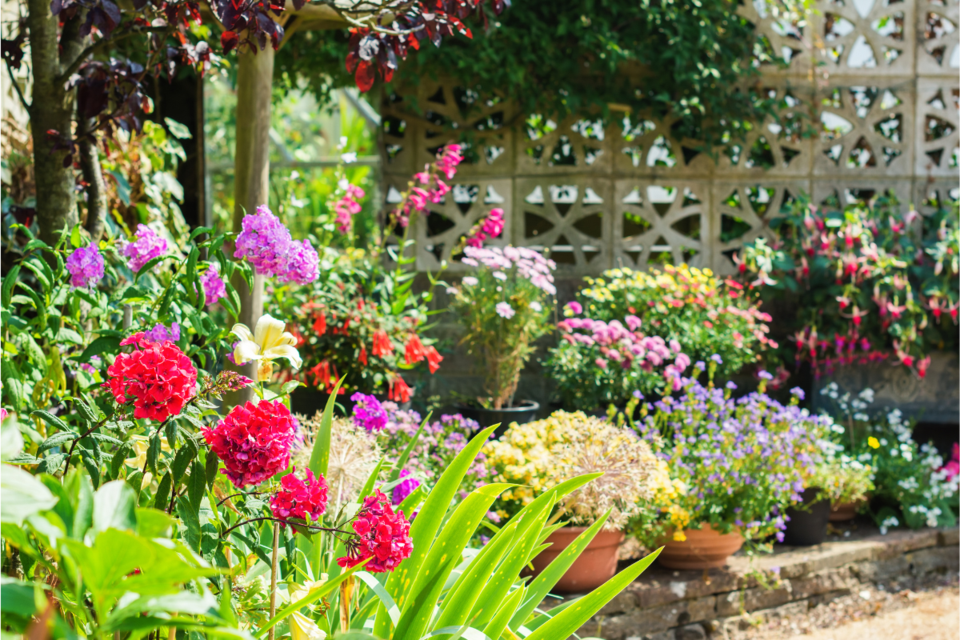By mid-June, Ontario gardens are in full bloom — and so are mosquito season’s unwelcome guests. While chemical sprays and candles are common tools in the summer bug battle, there’s another, more grounded approach: planting a garden that does some of the work for you.
Certain plants and flowers naturally repel mosquitoes, thanks to the aromatic compounds in their leaves and blooms. Whether you're working with a full backyard or a few containers on a balcony, integrating the right species can help reduce mosquito traffic and bring colour and scent to your outdoor space.
Citronella (Lemongrass)
Citronella is the plant most commonly associated with mosquito control. The scent is sharp and lemony, and mosquitoes avoid it. The plant itself is a variety of tropical grass that thrives in large containers. In Ontario, it’s treated as an annual or brought inside for the winter. Place pots of citronella near seating areas for the best effect: brushing against the leaves releases more of the natural oils that do the repelling.
Lavender
Lavender offers both function and form. Its pale purple flowers and silvery-green foliage are attractive in garden beds or along paths, and its scent is known to deter mosquitoes. Lavender needs well-drained soil and plenty of sun, and while it prefers warmer climates, some hardy varieties can survive Ontario winters with the right conditions. Bonus: it’s also a pollinator favourite and a natural addition to homemade sachets or teas.
Marigolds
Marigolds are a classic choice for their low maintenance and bright orange or yellow blooms, but they’re also effective at deterring mosquitoes and garden pests like aphids. They contain pyrethrum, a compound found in many insect repellents. Marigolds do well in containers, flower borders, or alongside vegetables, and the scent is strong enough to form a natural barrier when grouped together.
Basil
If you’re growing herbs this summer, basil earns a spot not only for cooking but also for pest control. The strong smell repels mosquitoes and can be amplified by bruising the leaves. Basil grows easily in containers, making it a practical choice for patios and balconies. Varieties like lemon basil and Thai basil provide different scent profiles, but all will have a similar repelling effect.
Bee Balm
Bee balm is native to Ontario and serves double duty in the garden. Its spiky, vibrant blooms attract bees, butterflies, and hummingbirds while discouraging mosquitoes with its minty aroma. It spreads readily and does well in flower beds or pollinator gardens. A few clumps of bee balm in sunny corners can add colour and a surprising amount of utility.
Catnip
Best known for its appeal to cats, catnip also happens to be a highly effective mosquito repellent, with some studies suggesting it’s more effective than DEET. It grows quickly and can be invasive if left unchecked, so containers or raised beds are a good idea. Like other members of the mint family, it prefers full sun and moist soil. Crushing the leaves releases the essential oils that keep bugs away.
More Tips for a Bite-Free Backyard
These plants aren’t a magic solution, but they can make a noticeable difference, especially when paired with basic mosquito prevention habits, like removing standing water from gutters, plant saucers, and outdoor toys.
Most of the mosquito-repelling effect comes from the aroma of the plants' oils, so placement matters. Keep pots near sitting areas or plant fragrant varieties near windows and doors. Combining several different species can increase the range of scents, and your chances that mosquitoes will move on.
For Ontario gardeners, the growing season is short, but the summer evenings are long. With the right plants in place, you can make the most of them with fewer bites, and a backyard that smells as good as it looks.




